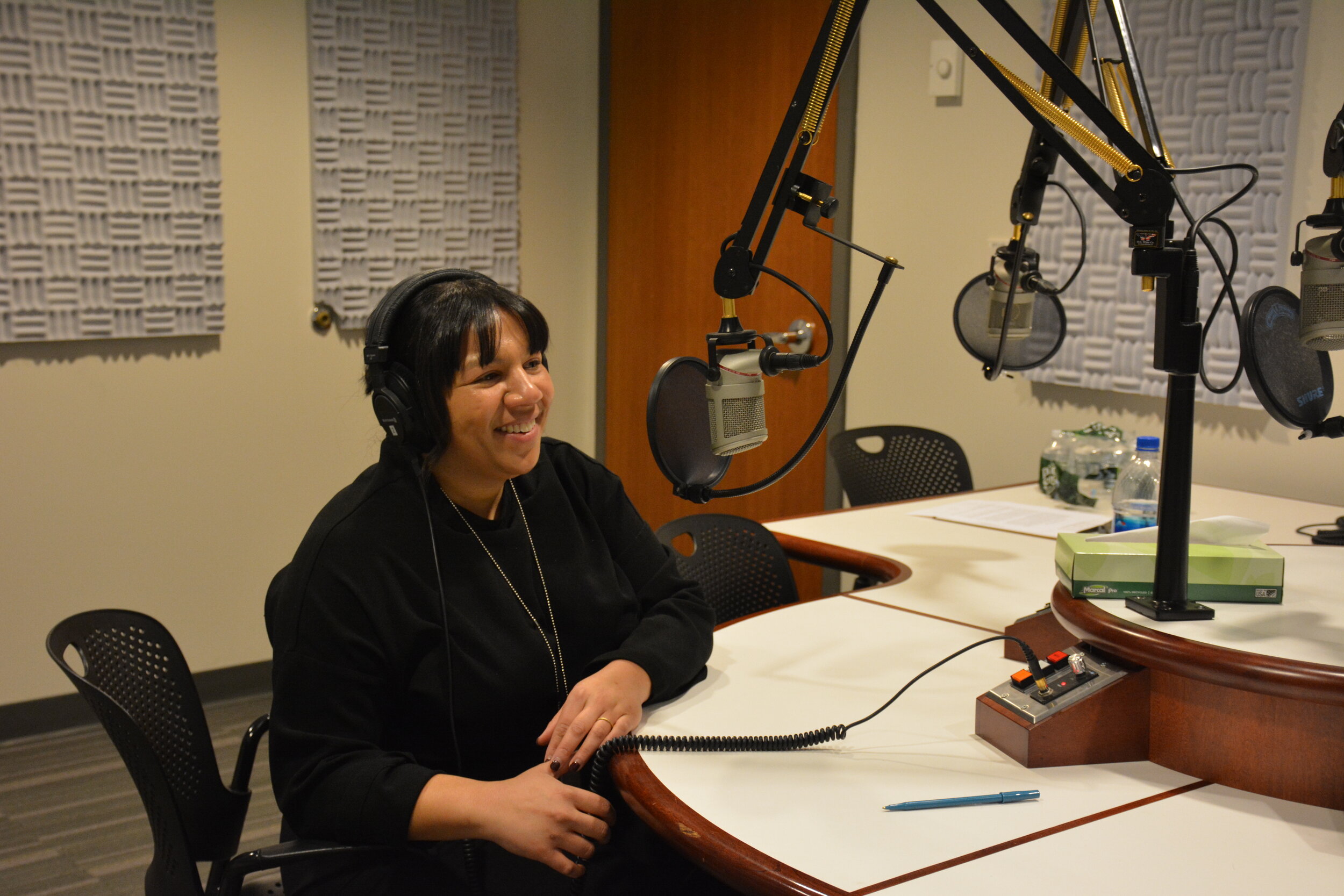
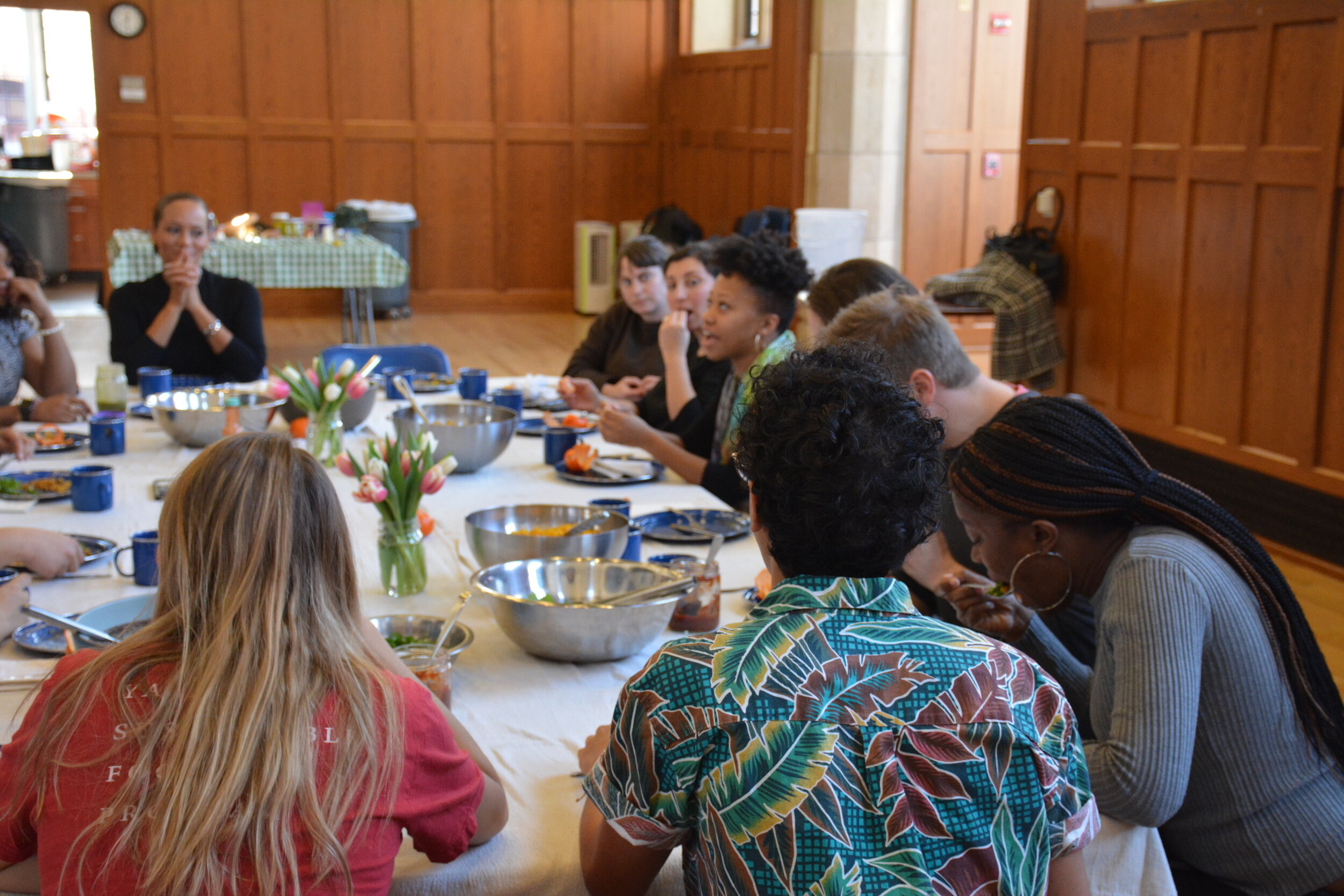
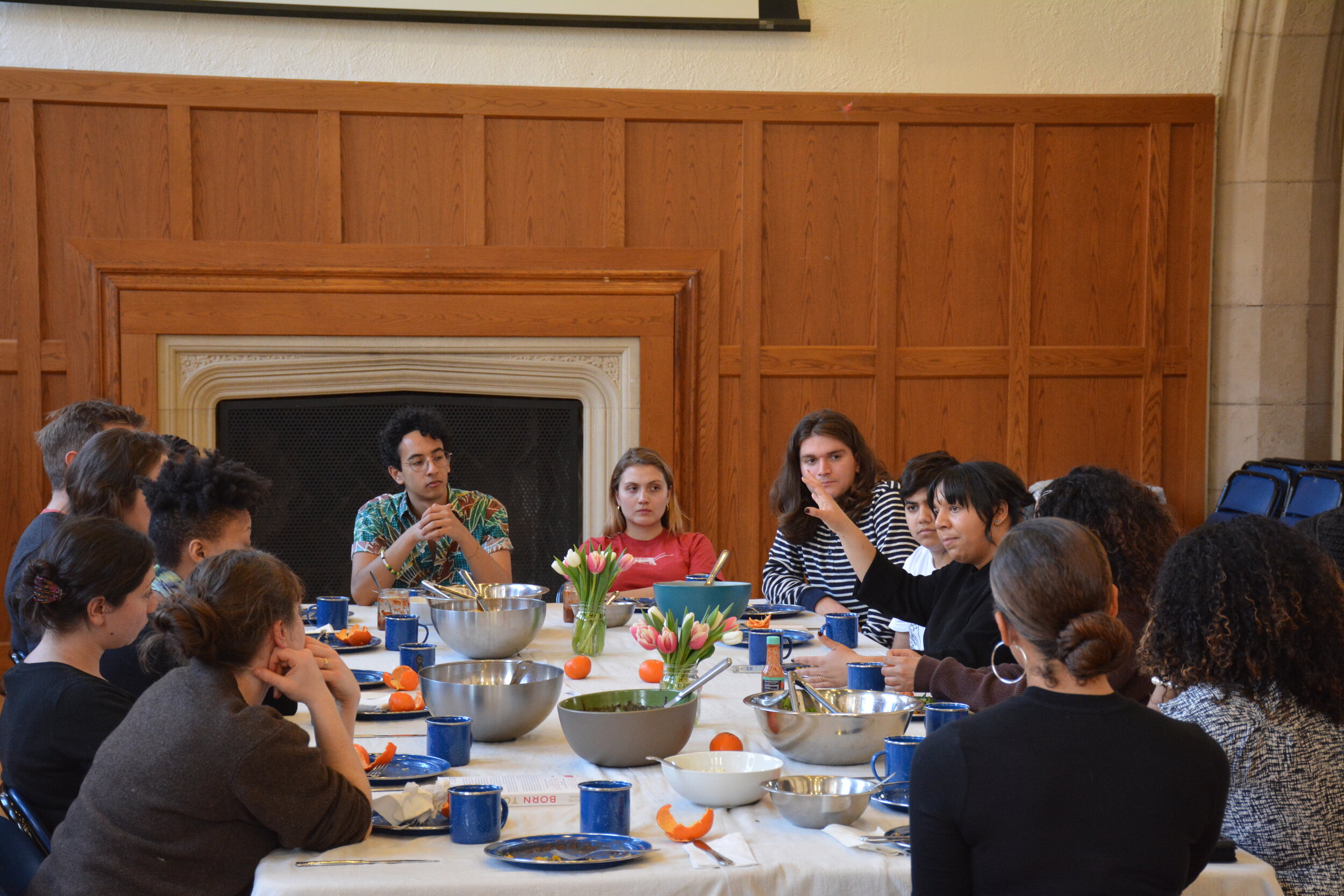
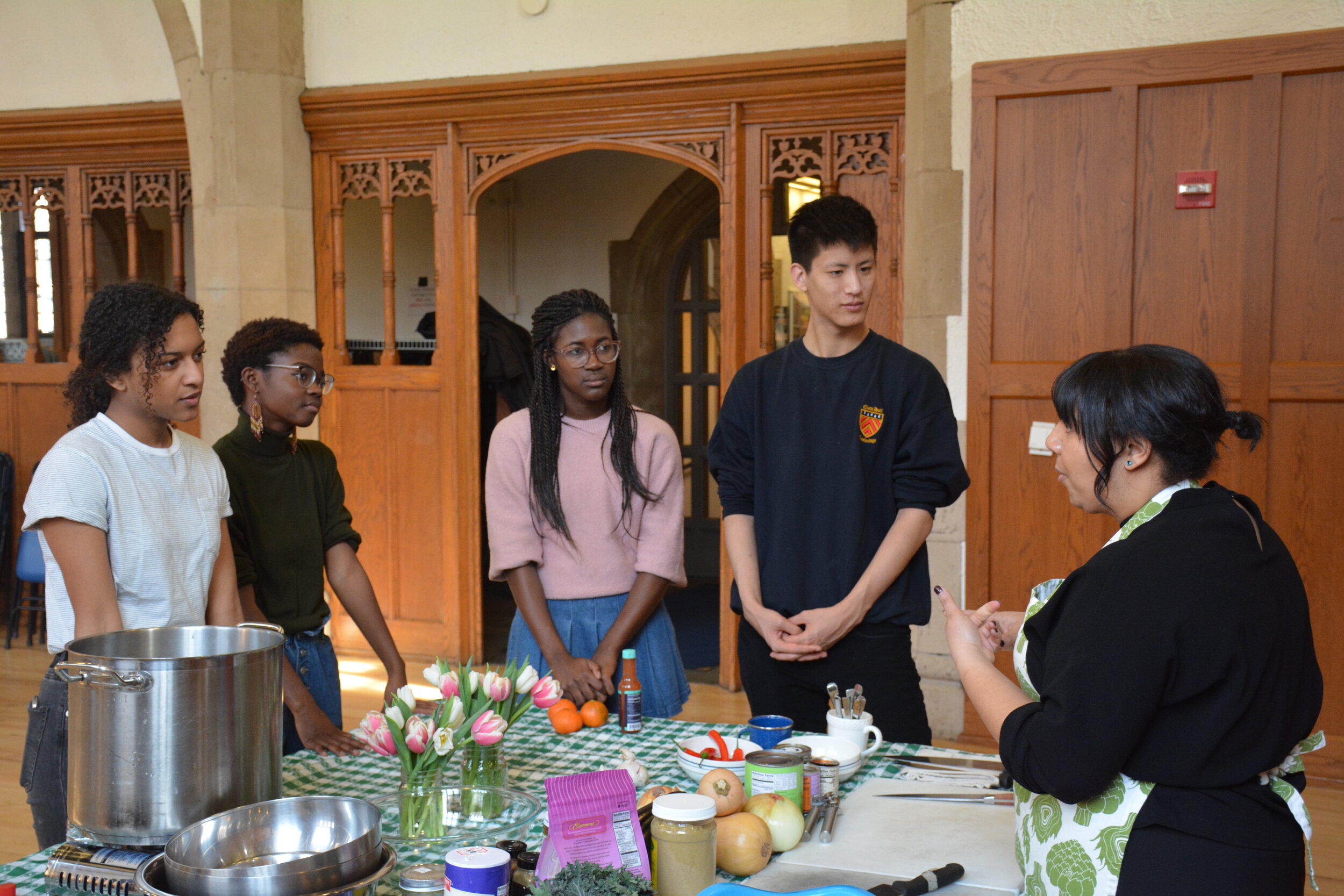
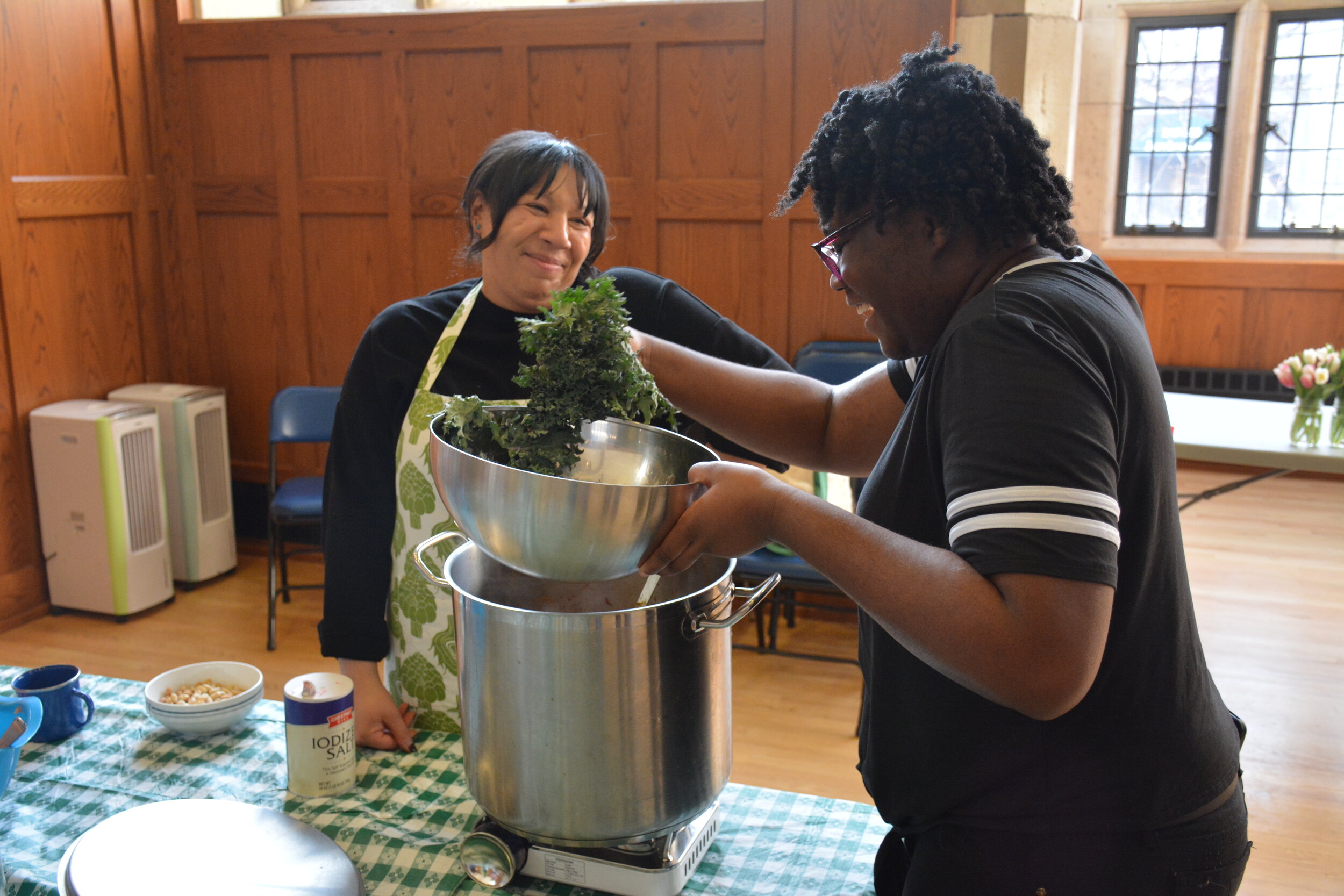
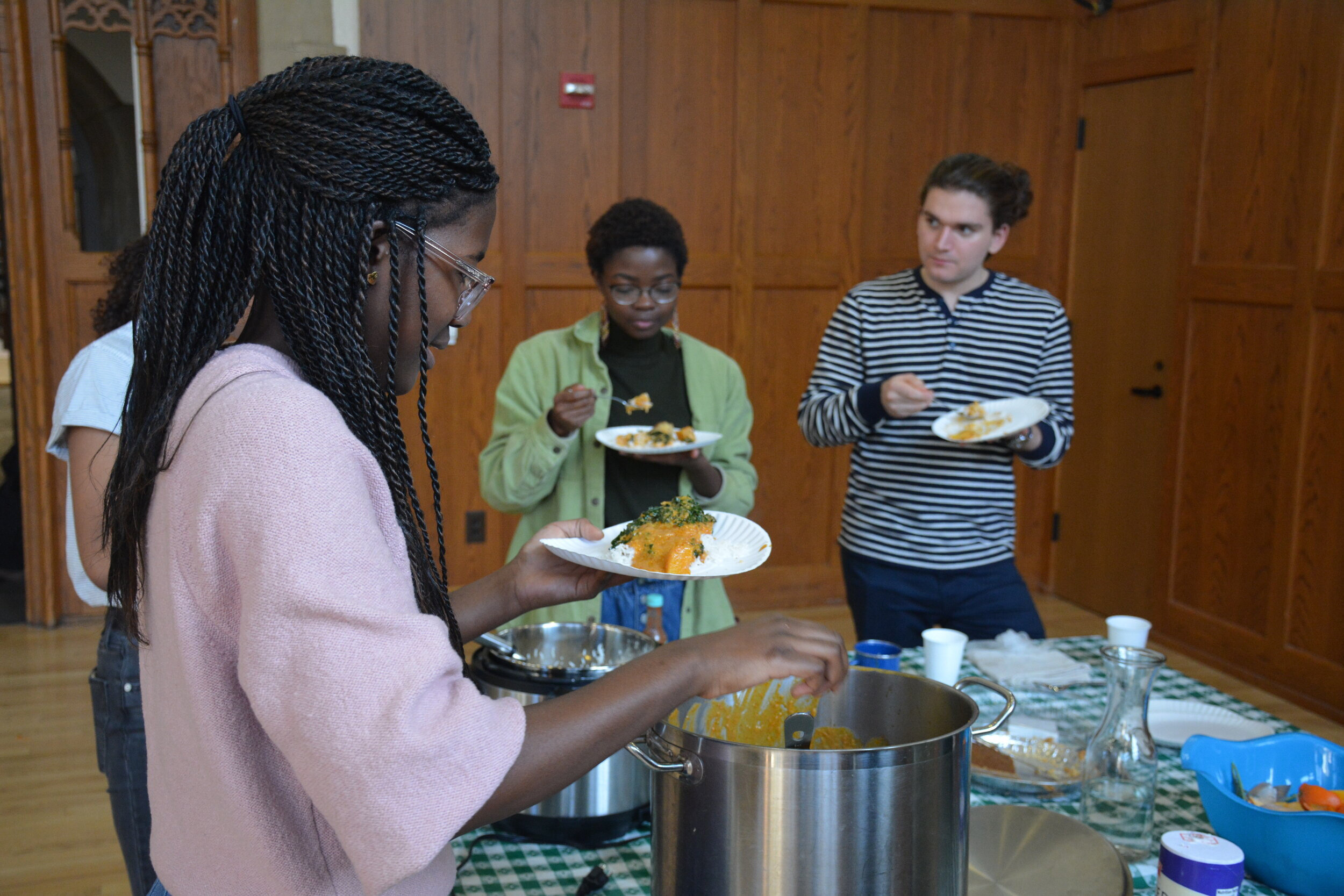

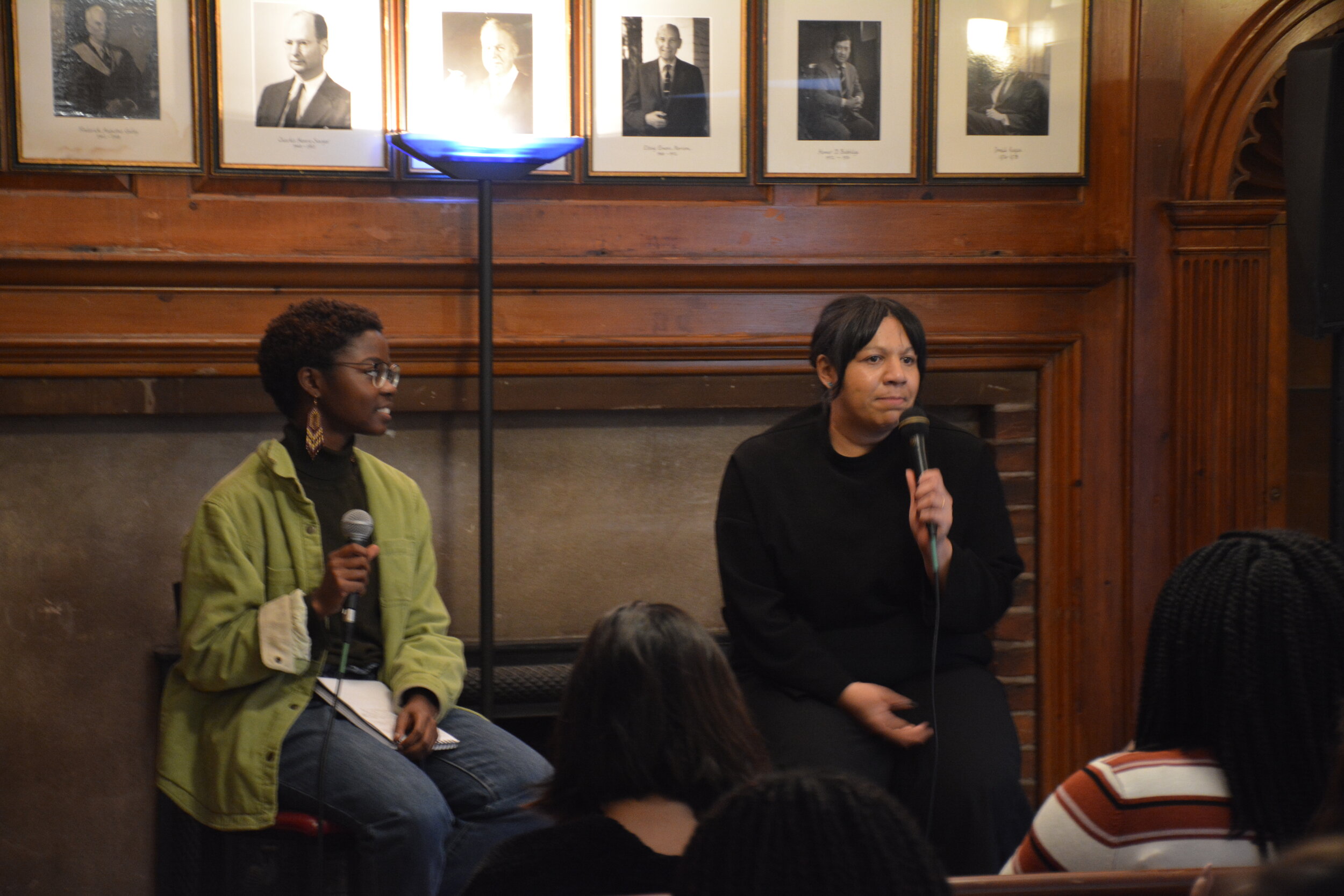
What does building a hyper-local food movement around equity look like?
Kiki Louya is a born Detroiter and Congolese-American chef, who founded Folk and The Farmer’s Hand. Together, the restaurant and grocery store have advanced the fair treatment of food and farm workers alike, supporting thriving urban agriculture and food justice efforts in Detriot. Also a co-owner at the all-women hospitality group, Nest Egg Detroit, Kiki visited Yale on February 24 to speak more about triple bottom-line practices (environment protection, social responsibility, economic success) in food business.
Kiki’s visit was the third in our “Cooking Across the Black Diaspora” series. A themed line-up for Chewing the Fat, this series was conducted in collaboration with the Afro-American Cultural Center at Yale, and the Yale Center for the Study of Race, Indigeneity, and Transnational Migration. In doing so, it commemorated Black History Month, and the 50th anniversary for both the Afro-American Cultural Center (fondly referred to as “the House”) and the Yale Department of African American Studies. Timothy Dwight College also supported Kiki’s time on campus.
Following a podcast session with YSFP student Thomas Hagen ’20, Kiki shared lunch with Yale students & staff, as well as New Haven community members at the House. Emphasizing her connection to food through her father’s cooking, Kiki spoke of the unapologetic ways she often brought her Congolese heritage into her menus and work, even when her career in hospitality may have been at odds with her own family’s wishes for her; later that afternoon, a number of students were able to enjoy cooking with Kiki, learning of a Congolese peanut stew Kiki’s father often made for her as a child. A perfect dish for winter!
YSFP student Kenia Hale ’21 moderated Kiki’s public conversation, exploring how Folk and the Farmer’s Hand have worked to address inequity, from tipping policies to empower urban agriculture in Black neighborhoods. The next day, Kiki was able to delve further into Detroit’s urban “revival” and working with many stakeholders like activists and farmers as part of a class visit to YSFP Director Mark Bomford’s college seminar, "CSYC 312: Sustainable Approaches to Food & Agriculture.”

